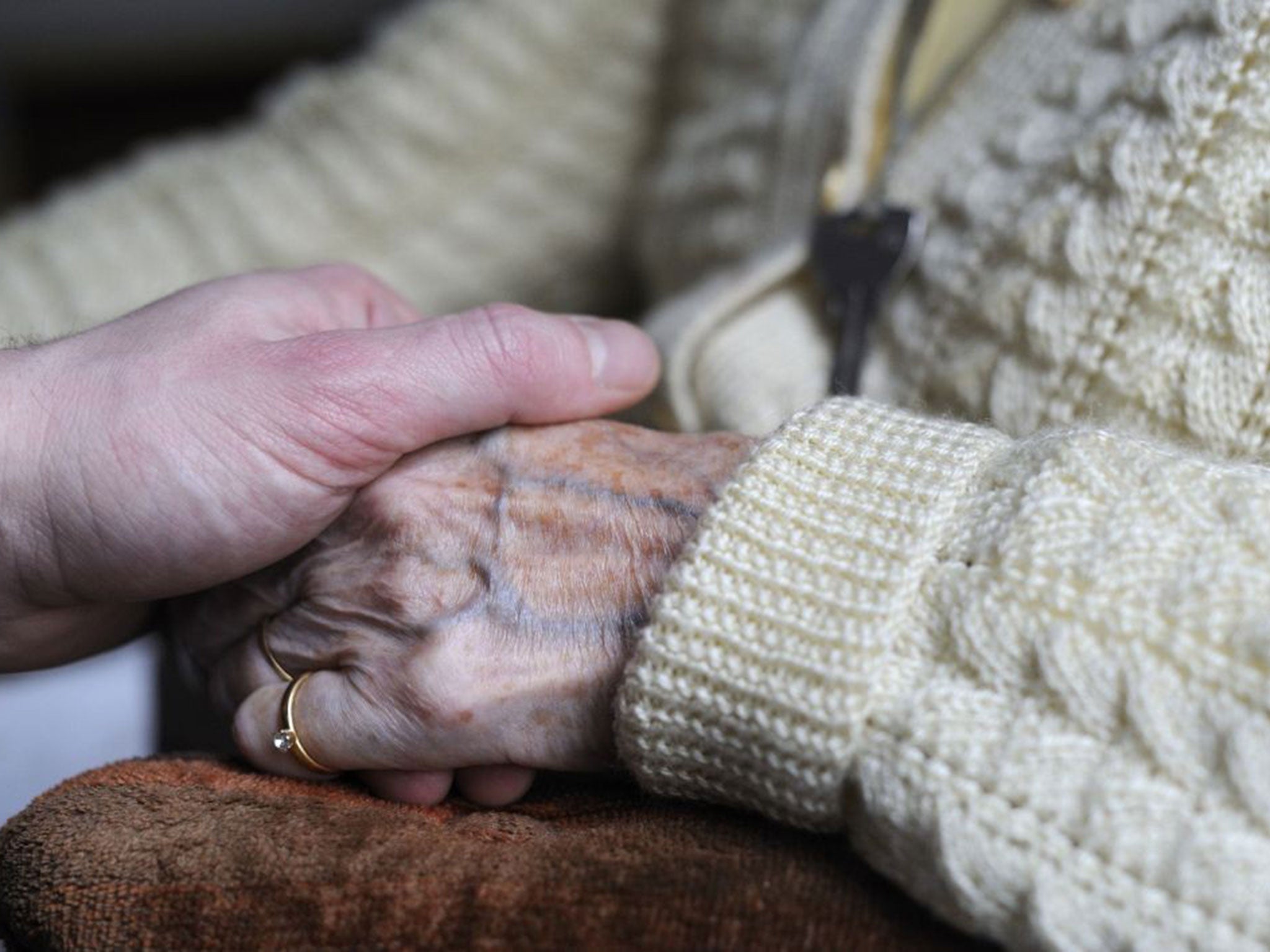Alzheimer's now costs the UK £26bn every year, major new research suggests

Two million Britons will suffer from Alzheimer’s by 2050, according to the most comprehensive review of the disease to date - which also reveals the costs of the condition to the UK have soared to £26bn a year.
New research by Alzheimer’s Society also shows that those affected by dementia is rising sharply and will reach 850,000 by next summer. The charity said dementia now inflicted a “staggering financial and human impact” on the nation, with two thirds of the costs shouldered by sufferers themselves, along with their carers and families.
According to the charity, the increasing financial drain of the disease on the economy is equivalent to paying the energy bills of the entire country, so it is urging the Government to “end the artificial divide between health and social care which unfairly disadvantages people with dementia”.
Dementia UK: The Second Edition, prepared by the London School of Economics and King’s College London, reveals how people with dementia and their carers are left footing a £5.8bn social care bill for help with everyday tasks such as washing and dressing. The authors say that the 1.3bn hours of unpaid care that carers, usually spouses or adult children, provide would cost the state £11.6bn if they did not provide it for free.
Meanwhile the current cost of dementia diagnosis and treatment to the NHS comes in at £4.3bn, while local authorities pick up a further £4.5bn, according to the authors.
Angela Sherman, director of Care to be Different, which advises on care fees and how to get the NHS to pay for care, told The Independent that families of dementia sufferers are often not told about funding available to them.
She said: “People with dementia often shoulder costs that the state has a duty to fund. Funding for full time care is called NHS Continuing Healthcare, and yet many families are not told about this. Worse, one of the biggest myths about Continuing Healthcare is that it doesn’t apply to people with dementia. This is false.
“If certain criteria are met, the funding is available. Unfortunately, in the funding assessment process there is a bias towards physical illness, and dementia is often declared to be a social care need [means tested], when in fact the disease can result in the need for nursing care that the NHS has a duty to provide free of charge. Dementia should never be assumed to be simply a social care issue.”
Jeremy Hughes, Chief Executive of Alzheimer’s Society, said: “This new research exposes the staggering financial and human impact of dementia. It is plain to see that our social care system is on its knees, leaving an army of tens of thousands of unpaid carers bearing the brunt.
“These spiralling costs cannot continue unchecked. 225,000 people develop dementia in the UK every year - that is one every three minutes. While Government has woken up to the challenge dementia presents, today’s report reveals we need radical solutions and serious funding commitments to put social care on a sustainable footing.”
Alzheimer’s Society has also published Dementia 2014: An Opportunity for Change which provides a snapshot of how 1,000 people with dementia are coping in England, Wales and Northern Ireland. Just over half of sufferers (58 per cent), reported to be living well while nearly two thirds (61 per cent) said they had felt anxious or depressed recently. Seven out of 10 people were living with another medical condition or disability as well as dementia and of those looked after by a carer, 43 per cent said their carer received no help with their caring role.
Meanwhile, common sleeping pills have been linked to an increased risk of developing Alzheimer’s, according to the BMJ. Scientists warned that unwarranted long-term use of benzodiazepines - widely prescribed drugs to treat anxiety and insomnia – should be considered a public health concern. Researchers said that almost 50 per cent of older adults who continue to use these drugs without any formal monitoring system could mean the consequences on brain health are likely to be missed.
Join our commenting forum
Join thought-provoking conversations, follow other Independent readers and see their replies
Comments